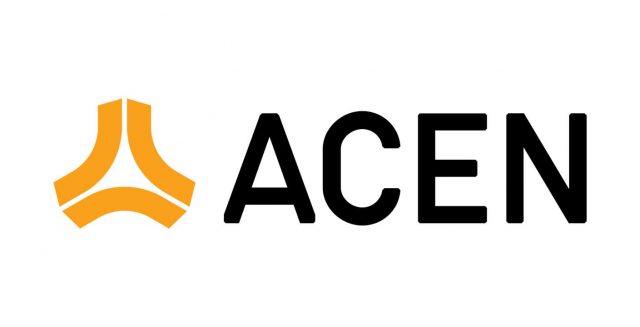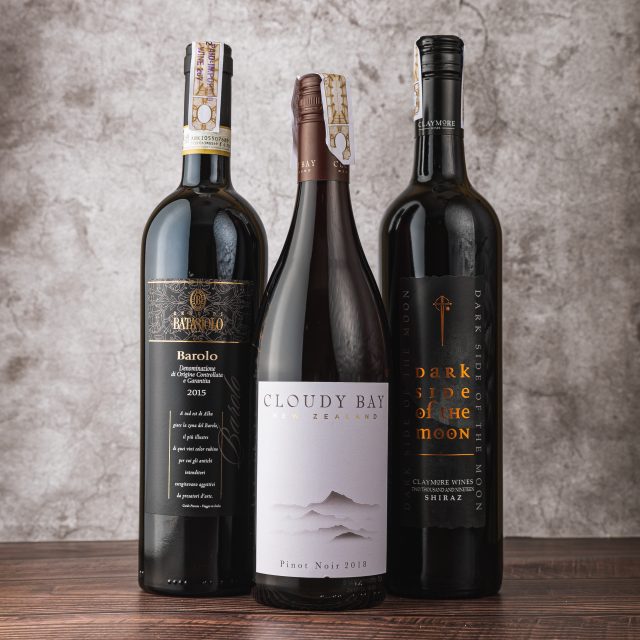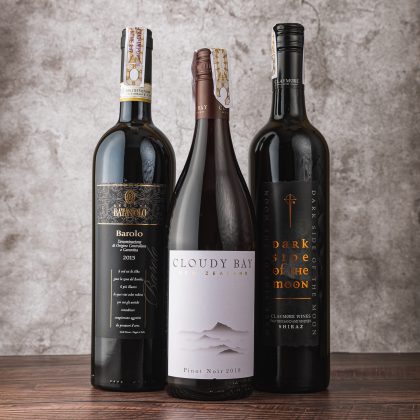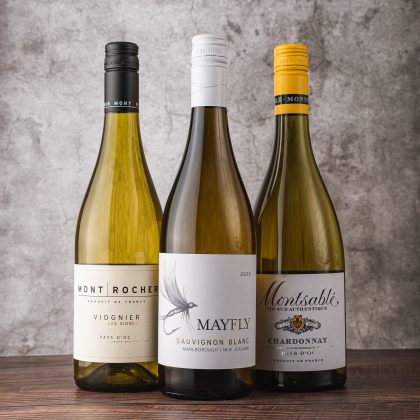Fruity wine from the Iberian Peninsula
WE can talk all day about wine trends, but what are Filipinos really drinking?
Data collected by wine marketplace Winery.ph saw 54 bestsellers each given the company’s own Kavino Choice Award, out of the 2,000 different bottles they have on stock. From these, Chris Urbano, Winery.ph Managing Director and Chief Sommelier and his team constructed a taste profile of the Filipino wine drinker. “It’s the only real data-backed picture of what Filipino wine drinkers actually enjoy, not what foreign wine critics and importers think we should enjoy and place on supermarket shelves,” he said.
“The data comes from the sales of Winery.ph only. Historically, foreign wine merchants have dictated what’s on supermarket shelves by having importers pay listing fees. As a marketplace, Winery.ph is open to all importers, and it costs nothing to list wine with us, so our data is a more democratic representation of the Filipino palate,” said Mr. Urbano in an e-mail to BusinessWorld.
In an e-mail, they listed the criteria they used for selecting the bestselling wines.
Only products listed on the Winery.ph online marketplace for at least six months of the calendar year are eligible for consideration, and award coverage is limited to wines with regular single bottle selling prices of ₱300 to ₱2,500. The selections are made on the basis of average monthly gross sales value, and sales volumes made under selective promotions (like flash and clearance sales) are excluded from analysis and selection decisions. Erratic purchases far above average order value are excluded from the analysis.
“All of the winners were determined by the number of units sold, so it’s a true reflection of what Filipinos actually like,” said Mr. Urbano.
“Dealto Crianza is our top-seller out of all 54 wines in the awards — probably because it’s the most value-for-money certified-Rioja wine in the Philippine market today,” he said.
Other winners for red wines under P1,000 include: Matsu El Picaro (Toro, Spain), Amnesia Red (Alentejo, Portugal), Aloe Tree Shiraz (Western Cape, South Africa), Gonzalez Byass Beronia Crianza (Rioja, Spain), Beringer Founders’ Estate Pinot Noir (California, USA), Mont Rocher Carignan (Herault, France), Jack Estate M-R Series Cabernet Sauvignon (Coonawarra, Australia), Mitolo The Nessus Shiraz (McLaren Vale, Australia), Guadalupe Red (Alentejo, Portugal), Pepperwood Grove Cabernet Sauvignon (California, USA), and Valdivieso Cabernet Sauvignon (Central Valley, Chile).
Spanish and Portuguese wines dominate the list. “The range has been dominated by wines from the Iberian Peninsula over the past few years. This underscores the great value for money to be had from the Spain and Portuguese wine industries, and reflects that fruit-forward wine styles appeal to the Filipino palate,” said Mr. Urbano. “It definitely helps that these pair extremely well to any Spanish-inspired dishes like relleno, lechon, or menudo (stuffed chicken, whole roast pig, and a dish of pork and liver cubes) — key influences on modern Filipino cuisine.”
The more premier lines with an upper price limit of P2,500 also saw a dominance of wines from the Iberian Peninsula, but wines from more terroirs, such as those from France, Italy, and the Americas also prove popular. The list includes: Gonzalez Byass Beronia Reserva (Rioja, Spain), Dealto Reserva (Rioja, Spain), Cloudy Bay Pinot Noir (Marlborough, New Zealand), All Saints Sangiovese Cabernet (Rutherglen, Australia), Quinta do Quetzal Reserva Red (Alentejo, Portugal), Pra Vinera Reserve Cabernet Sauvignon (California, USA), Château La Gurgue Margaux Bordeaux Blend (Bordeaux, France), St. Francis Cabernet Sauvignon (Sonoma County, USA), Baron Philippe de Rothschild Mouton Cadet Reserve (Medoc, France), Claymore “Dark Side of the Moon” Shiraz (Clare Valley, Australia), Batasiolo Barolo Nebbiolo (Piedmont, Italy), and Kaiken Ultra Malbec (Mendoza, Argentina).
For white wines under P1,000, they’ve deduced that New Zealand Sauvignon Blanc is still popular. The full list includes Mayfly Sauvignon Blanc (Marlborough, New Zealand), Printhie Mountain Range Sauvignon Blanc (Orange, Australia), Montsable Chardonnay (Pays d’Oc, France), Amnesia White (Alentejo, Portugal), Kung Fu Girl Riesling (Columbia Valley, USA), Rooks Lane Chardonnay (Murray Darling, Australia), Aloe Tree Chenin Blanc (Western Cape, South Africa), Deakin Estate Moscato (Murray Darling, Australia), Beringer Founders’ Estate Chardonnay (California, USA), Mont Rocher Viognier (Pays d’Oc, France), The Ned Sauvignon Blanc (Marlborough, New Zealand), and Spy Valley Satellite Sauvignon Blanc (Marlborough, New Zealand).
Of the more premier line from this category, the winners include Cloudy Bay Sauvignon Blanc (Marlborough, New Zealand), Cloudy Bay Chardonnay (Marlborough, New Zealand), Chrismont La Zona Pinot Grigio (King Valley, Australia), Craggy Range Te Muna Sauvignon Blanc (Martinborough, New Zealand), Cape Mentelle Chardonnay (Australia), Cakebread Cellars Sauvignon Blanc (Napa Valley, USA), Gustave Lorentz Gewürztraminer (Alsace, France), Greywacke Sauvignon Blanc (Marlborough, New Zealand), Jean-Max Roger Cuvée Marnes Et Caillottes Sancerre (Loire Valley, France), Baron Philippe de Rothschild Escudo Rojo Reserva Chardonnay (Casablanca Valley, Chile), Sons of Eden Freya Riesling (Barossa Valley, Australia), and Ferro13 The Lady Pinot Grigio (Delle Venezie, Italy).
On the white wines, Mr. Urbano says, “There are also signs that Pinot Grigio is becoming a new it-grape in the wine market, while fruitier, off-dry Riesling and Gewürztraminer are starting to find favor, perhaps because of their great potential for pairing with spicy Asian food.”
Finally, for the sparkling wine category, Winery.ph lists the following as their bestsellers: Chandon Brut Sparkling NV (Mendoza, Argentina), Aimery Crémant de Limoux Grande Cuvée 1531 NV (Languedoc-Roussillon, France), Sassetti Livio Valdobbiadene DOCG Prosecco Superiore Brut NV (Veneto, Italy), Deakin Estate Azahara Sparkling Chardonnay / Pinot Noir (Murray Darling, Australia), Valdivieso Sparkling Brut Rosé NV (Central Valley, Chile), and Gustave Lorentz Crémant d’ Alsace Brut NV (Alsace, France).
“Popular with customers are Italian Prosecco for its value for money and New World sparkling Chardonnay and Pinot Noir for their fruitiness. Regions like Chile and Argentina also make the cut as bestsellers,” Mr. Urbano observed. “This list proves that you don’t have to spend much to enjoy terrific sparkling wines,” with Champagne of course, being top of mind in the popular consciousness.
Mr. Urbano makes some observations based on the winners: “A majority of the wines that won this year are fruit-forward, meaning that Filipinos appreciate (it) when their wine is led with fruit flavors like berries and citrus versus more savory notes like spices and wood.”
Basing this observation on their sales data, he said, “We can say that many Filipino drinkers appreciate two things out of their wine: fruit-forward flavors and value for money. It also tells us about where the Filipino wine drinker is today: from buying familiar big-name brands and varieties, they are now transitioning toward a stage where they’re more confident about what they like and more adventurous with what they want to try. This can be seen in the appearance of lesser-known varieties like Gewurztraminer, Riesling, and Barolo on the list.”
He also noticed that, “The data is a reflection of the fact that Filipinos are discovering that quality and price don’t always go hand-in-hand. This is a great position to be, because it is allowing more Filipinos to become more adventurous — not just with varieties, but also with brands and wine regions. The world of wine can be intimidating, but with more Filipinos finding wines they love at affordable prices, it shows that it’s not as expensive or elitist a hobby as it can sometimes appear. Wine can be enjoyed by every Filipino,” he said.
“Our mission is ‘Vino for the Filipino,’ and this means helping to unearth the Philippines’ own unique wine palate and empower our customers with the confidence to drink and enjoy wine on their terms.” — Joseph L. Garcia



















